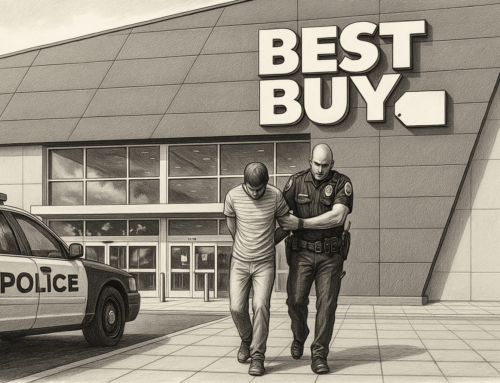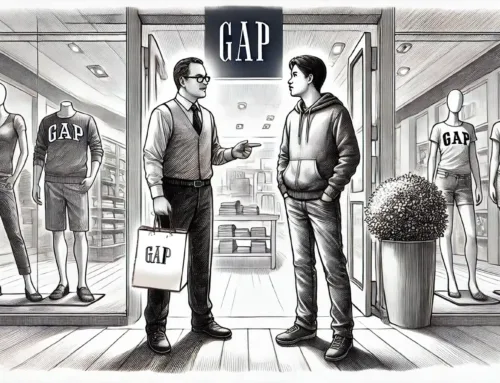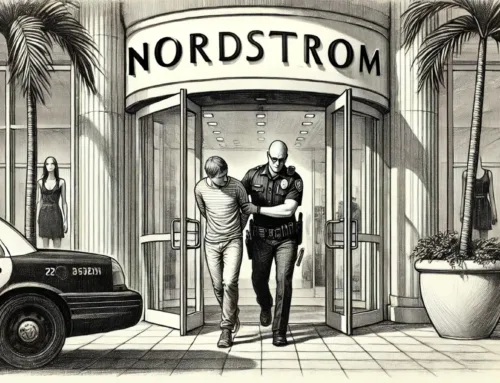Loss Prevention Officers in Miami Shoplifting Cases
Who Are Loss Prevention Officers, and What is Their Role?
If you’ve been accused of shoplifting in Miami, chances are a loss prevention officer confronted you. Loss prevention officers, sometimes called LP officers or LPOs, are specially trained retail store employees whose primary responsibility is to detect and apprehend shoplifters.
While regular retail associates focus on customer service and store operations, LPOs spend their days covertly monitoring for theft activity, whether by shoppers in the aisles or cashiers at the registers. They may walk around the sales floor in plain clothes, keeping a close eye on potential suspects. Other times, they sit in security offices and watch live CCTV camera feeds throughout the store. Some loss prevention officers will even pretend to shop themselves, all the while tracking the movements of other customers.
When an LPO witnesses a theft in progress, they are authorized to approach and detain the suspect, demanding they return the unpaid merchandise. The officer will escort the suspect to the loss prevention office to await police. LP officers will also collect evidence and write reports to aid the prosecution.
It’s important to remember that while loss prevention officers work for the retail establishment, they do not actually have the power to arrest or press charges. Only law enforcement can do that. However, in Florida, LPOs have a right to briefly detain suspected shoplifters and use reasonable force to recover stolen goods and prevent escape.
What Rights and Protections Do I Have Against Loss Prevention Officers?
While loss prevention officers have certain powers to catch and detain shoplifters, there are still legal limits on what they can do. Their goal may be getting a confession, but knowing your rights can help you avoid self-incrimination:
- They must have probable cause that you shoplifted. LPOs have certain rights to detain someone they reasonably believe has committed shoplifting. However, these detentions must generally be reasonable in duration and manner.
- They cannot search your belongings or go rifling through your purse, backpack, pockets, etc. Although LPOs are permitted to detain someone they reasonably suspect of shoplifting to investigate further, they do not automatically have the right to conduct a full search of your personal belongings.
- They cannot forcibly fingerprint you. Only law enforcement can fingerprint a suspect. LPOs who force or coerce this could face criminal charges.
- You have the right to remain silent. Anything you say to an LPO can potentially be used against you. You are never required to answer their questions or sign any statements.
- Although they can temporarily detain you until law enforcement arrives, they generally cannot handcuff or lock you in a room. The use of force or restraints, like handcuffs, by an LPO can be tricky. The use of handcuffs can be seen as excessive in many situations. If an LPO uses excessive force or illegally detains someone, they and their employer can potentially face civil liability for false imprisonment, assault, battery, or other claims. Likewise, locking you in a room can amount to false imprisonment if done improperly or without just cause.
- They cannot make deals or drop charges. Only the prosecutor can make plea offers or decide not to press charges. Don’t let an LPO convince you to confess by making false promises.
While loss prevention officers have authority conferred by their employer, they must operate within legal limits. Never hesitate to exercise your rights if confronted.
How Will an LPO Impact My Shoplifting Case After Police Arrive?
Once law enforcement arrives on the scene responding to a shoplifting call, the loss prevention officer takes a back seat, but their involvement doesn’t end. The LPO will provide officers with evidence written statements and testify to their observations.
If taken into custody, the officer’s version of events will be included in the police report and weighed by prosecutors deciding what charges to pursue. Sometimes, the LPO may even appear at your court hearings to give testimony in a trial.
Some of the key ways a loss prevention officer can influence a shoplifting case include:
- Providing video evidence. Most major retailers have CCTV systems that LPOs can review and extract footage for police. Video of the incident can be very incriminating.
- Submitting a sworn affidavit. The officer will draft an official written statement of their account, signed under penalty of perjury. This affidavit is heavily relied upon to demonstrate probable cause.
- Personally identifying the suspect. The LPO can pick you out of a lineup or photo array if they directly saw the theft occur. This solidifies identification.
- Offering prosecutor testimony. Since LPOs usually witness accused shoplifters firsthand, they may testify at pretrial hearings, grand jury proceedings, or trials. Their eyewitness testimony can be damaging.
- Encouraging harsh charging. Loss prevention will advocate that prosecutors charge retail theft offenses as felonies rather than misdemeanors when possible due to the dollar amount.
- Calling for stiffer penalties. LPOs routinely request stiff sentences upon conviction to deter further theft. They may paint you as a sophisticated professional shoplifter deserving maximum jail time.
While LPOs cannot make arrests independently, they can be the catalyst for initiating serious shoplifting charges and consequences with police and in court. Their participation in building the case should not be taken lightly.
Working with a Lawyer to Challenge a Loss Prevention Officer’s Actions
If questionable loss prevention tactics have landed you in criminal trouble, the help of an experienced attorney may be your best asset for fighting back. There are a number of legal strategies available to call into question the conduct of overzealous LPOs:
- Dispute improper detention. It may be argued the LPO lacked reasonable suspicion for the initial detention, tainting any subsequent findings.
- Object to hearsay. Since police didn’t witness the theft firsthand, much of the accusation relies on hearsay from the LPO, which your lawyer may dispute.
- Question the LPO’s reliability. Credibility issues, lack of training, and dishonesty in prior cases can all undermine an LPO’s version of events in court.
- File a civil rights lawsuit. In extreme cases of LPO abuse like excessive force, false arrest, etc., you may have grounds for a civil lawsuit alongside defending the criminal charges.
While LP officers can seem imposing, an assertive legal strategy questioning their actions can significantly impact the progression of your criminal shoplifting case. Don’t let intimidation or fear cause you to accept responsibility prematurely.
Why an Experienced Shoplifting Lawyer is Your Best Ally Against Loss Prevention
Facing shoplifting charges in Florida with a loss prevention officer actively aiding prosecution can feel overwhelming without knowledgeable legal counsel. An accomplished local shoplifting defense attorney will guide you through the process using proven strategies to proactively protect your rights.
They will immediately meet with loss prevention and police to contest improper procedures and overreach. They will then begin developing your customized defense strategy for court, drawing upon deep expertise negotiating with prosecutors in retail theft cases. An attorney may even initiate plea negotiations early on or file pretrial motions challenging the LPO’s actions.
Should your case go to trial, your lawyer will thoroughly prepare to cross-examine the testifying loss prevention officer. They will know the right questions to ask to undermine the LPO’s claims and expose any doubtful practices. Your attorney can also call expert witnesses to rebut the officer’s statements.
When your freedom, criminal record, and reputation are on the line, you need an assertive lawyer in your corner willing to stand up to loss prevention overreach. Don’t leave your defense to chance. An experienced and skilled shoplifting attorney understands these cases inside and out and is here to fight for you.
CALL US NOW for a CONFIDENTIAL INITIAL CONSULTATION at (305) 538-4545, or take a moment to fill out our confidential and secure intake form.* The additional details you provide will greatly assist us in responding to your inquiry.
*Due to the large number of people who contact our law office requesting our assistance, it is strongly suggested that you take the time to provide us with specific details regarding your case by filling out our confidential and secure intake form. The additional details you provide will greatly assist us in responding to your inquiry promptly and appropriately.
THERE ARE THOUSANDS OF LAW FIRMS AND ATTORNEYS IN SOUTH FLORIDA. ALWAYS INVESTIGATE A LAWYER’S QUALIFICATIONS AND EXPERIENCE BEFORE MAKING A DECISION ON HIRING A CRIMINAL DEFENSE ATTORNEY ATTORNEY FOR YOUR MIAMI-DADE COUNTY CASE









